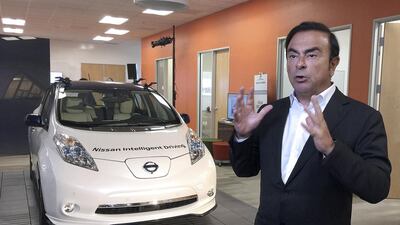Mention self-driving cars in a group setting and someone always gets upset. As with an angry hunter and his trusty rifle, talk will inevitably turn to having to pry the steering wheel out of someone’s cold, dead hands.
The advent of autonomous vehicles is a veritable doomsday for such individuals, the coming forfeiture of a fundamental freedom we’ve all enjoyed since Henry Ford began producing mechanized horse-drawn carriages in large numbers a century ago.
A lot of people really, really like to drive – and it’s easy to see why. For many, driving is synonymous with freedom. The ability to leave one’s present location and go anywhere at any time is both literal and symbolic. No matter who you are – rich or poor – you can always hop into a car and change your current circumstances by relocating, even if only temporarily.
But what if, rather than taking away our right to the open road, self-driving vehicles enhance that freedom? What if autonomous cars, instead of making us slaves to them, provide us with more liberty?
At the Consumer Electronics Show in Las Vegas a few weeks ago, Carlos Ghosn, Nissan’s chief executive, suggested that more positive outcome is actually more realistic than the alternative, at least for the near future.
“Autonomous driving isn’t going to kill the pleasure of driving,” he said. “It will be reinforced because it will give you the choice of when to drive.”
Odds are he’s right. Consider that in just about every jurisdiction where self-driving vehicle tests are currently allowed, a human must remain behind the wheel to take control in case of emergency. Barring laws that forbid human driving altogether – a development that is still far away, if it ever comes to pass – this will probably be the case for years to come.
Humans are thus destined to remain in the loop and we will have the ability to continue driving at our discretion. With the push of a switch that turns the robot driver on and off, we will be able to drive when we want and give up the wheel to the car in those situations where we'd rather be doing something else.
Rush hour comes to mind. With the possible exception of masochists, no one likes driving in heavy traffic. Navigating Sheikh Zayed Road in Dubai during the morning and afternoon commutes, for example, is nobody’s idea of fun. Is there a freedom-loving individual alive who wouldn’t want to give the wheel over to someone – or something – else at such times?
Rather than stressing and aggravating over bumper-to-bumper traffic that is seemingly going nowhere – talk about your freedom limitations – we’ll be able to kick back, watch a film, do some work or take a nap while the car navigates through commuter chaos.
Then there’s the flip side. Having your hands on the wheel while cruising down that same road in the middle of the night when it’s deserted, or across a lonely mountain highway or a beautiful coastline at sunset, can be idyllic, therapeutic and even intoxicating.
These rare and sought-after experiences have fuelled our collective romanticisation of driving for decades. They’re the fundamental stuff of car commercials, for good reason. When you’re lucky enough to come across one of these scenarios, it’s fantastic.
Not to be forgotten in this discussion is the fact that autonomous vehicles will also grant new freedoms to large groups of people – seniors, the blind and handicapped, among them – who don’t currently get to enjoy the pleasure of driving. Parents might also be liberated from having to drive their children to and from school and other activities.
When self-driving vehicles start to roll out commercially – expected to happen by as soon as 2019 in the UAE – more of us will have the luxury of experiencing a greater proportion of the good kind of driving and less of the bad kind.
There are many concerns when it comes to self-driving vehicles – protecting them against hacking attacks, affordability issues and liability questions in the case of accidents are just a few that come to mind. But the curtailing of personal freedoms isn’t likely to be among them.
We should worry about autonomous vehicles for the right reasons, but we also need to be optimistic about the benefits they’ll bring. Aside from what is likely to be a major decrease in car-related accidents and fatalities, we also have freer and more pleasurable driving to look forward to.
Winner of the Week: Apps. Bucking the conventional wisdom that they had stalled out, mobile applications – apps – are continuing to grow, according to tracking firm App Annie. Downloads rose by 15 per cent in 2016 from a year earlier while overall revenue went up by 40 per cent.
Loser of the Week: Xiaomi. The Chinese electronics maker has opted not to disclose how many smartphones it sold in 2016 after falling short of its targets the previous year, which could bode trouble at the company. Lei Jun, the chief executive, says Xiaomi has grown "too fast."
Peter Nowak is a veteran technology writer and author of Humans 3.0: The Upgrading of the Species.
business@thenational.ae
Follow The National's Business section on Twitter

